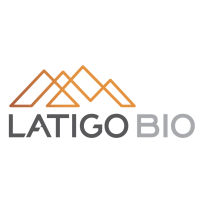Latigo Biotherapeutics thinks it can one-up Vertex Pharmaceuticals’
recently approved
Journavx, which ignited the non-opioid landscape for treating pain.
The Los Angeles-area biotech is testing a similar type of small molecule, called a Nav1.8 inhibitor, like Vertex’s landmark drug.
To prove whether it has the best-in-class medicine, investors have backed Latigo with another $150 million. The company disclosed the Series B Monday morning.
Endpoints News
reported
on the biotech’s plans for the financing round last month.
Latigo broke cover
last February with $135 million
after a few years in stealth mode. It’s quickly accelerated in the time since, hiring a new CEO, chief medical officer and finance chief, as well as instituting new board members, including former Horizon CEO Tim Walbert as chair.
The startup is in Phase 2 with LTG-001 for acute pain and Phase 1 with LTG-305 for chronic pain. Aside from Vertex and Latigo, other startups are in the Nav1.8 arena, like
SiteOne Therapeutics
.
“Journavx’s approval was a very clear signal from FDA that they’re leaning in,” CEO Nima Farzan said in an interview. “They gave them, in a lot of ways, a good label for the data they had generated. Having, for example, full acute pain, not just post-surgical pain [and] not having a restriction on days of use.”
“You clearly see the regulatory agency leaning in on that. That’s very positive,” Farzan continued. “Yet there are still very clear opportunities for innovation and a potential best-in-class.”
The onset of efficacy and restrictions on drug-drug interactions, with hepatic and renal side effects, in Journavx’s label “leave room for innovation,” Farzan said.
The new funding will allow Latigo to collect Phase 2 and early Phase 3 data in acute pain, Farzan said. The biotech will have to run multiple Phase 3 trials but won’t conduct them concurrently as a pharmaceutical giant with larger firepower might be able to do, he said.
The Series B will also help Farzan and the team collect early efficacy results in chronic pain. Meanwhile, the 45-employee biotech continues its drug discovery hunt in acid-sensing ion channels, or ASICs.
Latigo can get into Phase 3 on its own in acute pain but might eventually seek a partner to help it approach the more difficult chronic pain setting, he said. They’ve got a “robust” manufacturing process in place with external help, the CEO said.
Blue Owl Capital led the Series B. Latigo’s investor base also includes Deep Track Capital, Access Biotechnology, Qatar Investment Authority, Cormorant Asset Management, Sanofi Ventures, Rock Springs Capital, UPMC Enterprises, Kern Capital, Westlake BioPartners, Foresite Capital, 5AM Ventures and Alexandria Venture Investments.
In the meantime, Farzan will be keeping a close eye on how Journavx’s approval and the broader non-opioid pain field pan out. “Are we going to start to see states coming up with policies trying to push even more patients away from an opioid?” he said.
He pointed to measures that California has put in place that require prescribers to fill out a “complicated” form if they want their patients to get an opioid. “States are putting barriers in front of opioid prescriptions, and I’m wondering if those will even increase now that there are other options available,” Farzan continued. “Obviously that’s going to be a little bit longer term.”
As for Vertex, company leadership has said they’ve been encouraged by conversations so far around the uptake of their medicine, approved Jan. 30.
“There was some news in the press last week about ongoing conversations we have with Optum, not complete yet, but I think positive that these are occurring so rapidly,” Vertex CFO Charles Wagner said on March 10 at the Leerink Partners Global Healthcare Conference in Miami.
New York and Arkansas have already provided coverage for Journavx, he said. “We have a lot to go, but the early signs are really encouraging,” Wagner said at the conference.






